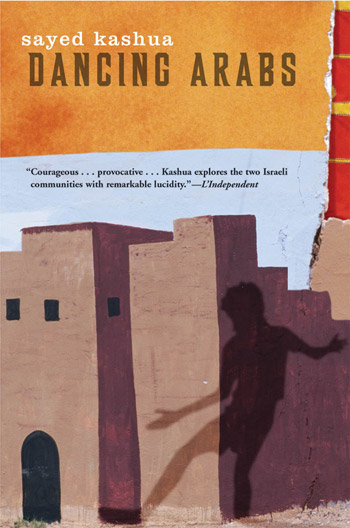Dancing Arabs
by Sayed Kashua, translated from the Hebrew by Miriam Shlesinger
Grove Press
Most of us Jews in Canada who support and love the State of Israel rarely think about the 20 per cent of Israeli citizens who are Arabs. I am not referring to Arabs who live in the West Bank and are not citizens, though they are subject to Israeli army law. I refer to the Arabs who live within the pre-1967 borders of Israel and who are full-fledged Israeli citizens. It is often argued that Israeli Arabs have, on average, more rights and privileges and a higher standard of living than Arabs who live in any of the countries bordering Israel. This is almost certainly correct. Arab citizens vote in Israeli elections, serve in the Israeli parliament and enjoy freedom of speech to an extent unheard of in that part of the world – as we all saw in videos of Arab Knesset members heckling Prime Minister Stephen Harper when he recently addressed the Knesset.
On the other hand, the educational and economic gap between Jewish and Arab citizens of the state is significant. Regardless of whose fault this is, many opportunities in Israel are open for Arabs in theory only. To choose a familiar example, Arab citizens of Israel are often subjected to more serious security checks than Jews are, for example when driving into the airport or walking onto a university campus.
As Israel continues to emphasize that it’s a “Jewish state,” citizens who aren’t Jewish naturally feel a sense of discomfort. True, many people around the world live in countries where the official religion is not theirs. Even in my own youth, it was not uncommon to hear the claim that Canada was a “Christian country” and that Jews and other minorities were tolerated but not part of the dominant culture. But some countries are more tolerant of their minorities than others, and Israeli Arabs must deal with widespread suspicion of all Arabs due to the reality of Arab terrorism.
Few Israeli Jews have close friends who are Arabs. Many might not have any significant contact with those 20 per cent of their fellow citizens. One of the best known Israeli Arabs for the Jewish Israeli public is Sayed Kashua, who has been writing a weekly humour/satire column in the Israeli newspaper Ha’aretz for many years. Kashua also writes the scripts for a very funny sitcom on Israeli television entitled Avodah Aravit (Arab Labour). He has published three books that shed light on what daily life is like for an Israeli Arab.
His Dancing Arabs is a coming-of-age novel written in first person in the voice of a fictional Arab Israeli whose name we never learn. The life of the hero of the novel and Kashua’s life overlap. They both come from the Israeli Arab city of Tira. They both excelled in their studies in elementary school and ended up going to an elite high school in Jerusalem (perhaps akin to Upper Canada College in Toronto) where they were part of a tiny number of Arab students in an almost entirely Jewish school. Both Kashua’s real-life father and his fictional character’s father were arrested on suspicion that they were involved in a terrorist bombing at the Hebrew University. Both fathers were held in administrative detention for a number of years and then released without being charged.
As in all books written in this genre, it’s hard to know how much of the book is autobiographical. I hope the fictional narrator’s description of the intolerable marital tensions with his wife and his problems with substance abuse are fiction, though I suspect that at least the dependence on alcohol might be anchored in Kashua’s real life, since alcohol and drunken stupors play a role in his Ha’aretz columns too frequently for my taste.
The book provides a useful window into the life and concerns of an Israeli Arab trying to fit into daily life in Israel. As the narrator grows up, his own family and friends encourage him to be a proud Arab nationalist. But he often wishes he were a Jew, and he looks for acceptance in Jewish circles. He seems crushed when he figures out that his Jewish girlfriend sees their friendship simply as a high school fling and would never consider having a relationship with him after graduation.
In Israel, Kashua is beloved by many but mistrusted by others. Some Jews worry that he is an opponent of Zionism, and some Arabs see him as an Uncle Tom. During operation Cast Lead, Kashua wrote a satirical column in the voice of a right-wing Jew, saying that Arabs only understand force and that they have to be treated without compassion and hit hard until they understand who is boss. Unfortunately, a number of Arab Israeli readers did not realize the column was satirical and started a campaign against Kashua as an alleged traitor to his people. Kashua reacted by saying that apparently Israeli Arabs have not learned to identify cynicism.
This book sheds good fictional light on a serious Israeli social problem. But I must add that you miss something when you read it in English translation (although this translation, by Miriam Shlesinger, is readable and accurate).
Part of what makes Kashua a curious anomaly is that he writes in Hebrew, and in fact in a flowing and readable modern Hebrew. In Hebrew, he sounds like any educated secular Israeli Jew. It’s important to remember that modern Hebrew isn’t just a “Jewish language,” but also the language of more than one million Arabs.
